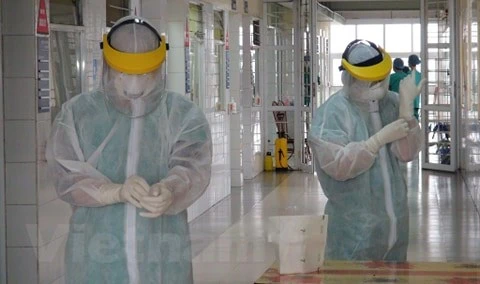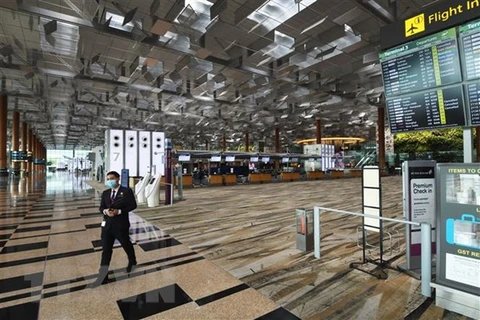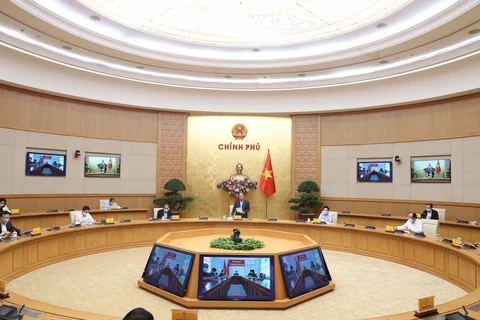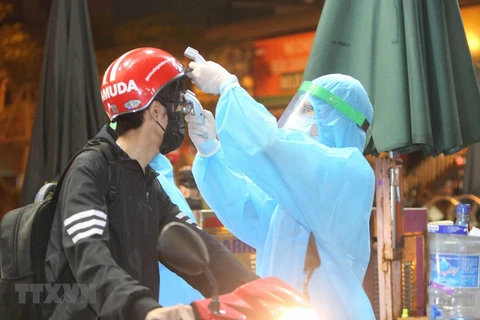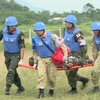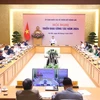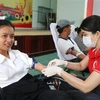Hanoi (VNA) - DW News, a German-based English-language news and information channel, has just published an article lauding Vietnam’s outcomes in its ‘war’ against the novel coronavirus.
The article, titled ‘How Vietnam is winning its 'war' on coronavirus’ opened with a question of how Vietnam, a densely populated neighbour of China with weak healthcare system and a low budget for combating the virus, has managed to keep its COVID-19 infection rate so low.
It wrote as the coronavirus pandemic rages in wealthy European countries, more than 10,000 kilometers from China where the outbreak began, Vietnam has widely been spared.
According to the article, in Germany alone, the latest numbers from the Johns Hopkins University show 50,871 people have been infected with the virus, resulting in 351 fatalities.
Vietnam, which shares a 1,100-kilometer-long border with China, however, has only reported under 200 infections and no fatalities since the outbreak began in January.
“Even if we consider these numbers with a dose of caution, one thing is clear: Vietnam has a done a good job thus far in fighting the coronavirus,” it said.
 Prime Minister Nguyen Xuan Phuc examines the Defence Ministry’s COVID-19 control and prevention work (Photo: VNA).
Prime Minister Nguyen Xuan Phuc examines the Defence Ministry’s COVID-19 control and prevention work (Photo: VNA). During the Lunar New Year celebrations at the end of January, the Vietnamese Government said it was "declaring war" on the coronavirus, although the outbreak at that time was still confined to China. Premier Nguyen Xuan Phuc said during a meeting that it would not be long before the coronavirus reached the country. "Fighting this epidemic, means fighting the enemy," it quoted the PM.
The article went on to analyse the factors behind Vietnam’s ‘good job’.
Mobilizing on all fronts
However, this fight will depend on a lot of government funding and a stout public health system, which are two things that Vietnam lacks.
Vietnam does not have the capacity to undertake a South Korea-style fight against coronavirus, which has so far involved carrying out 350,000 tests. The country's medical system is also limited. Nguyen Thanh Phong, the mayor of Ho Chi Minh City, a metropolis of 8 million people, said that the city's hospitals have a total of 900 intensive care beds. An epidemic in the city would easily overwhelm this capacity.
To take the fight to coronavirus, Vietnam instituted rigorous quarantine policies, and carried out complete tracing of all people who came in contact with the virus. These measures were implemented much earlier in the course of the epidemic than in China, where lockdowns of entire cities were used as a last resort to keep the virus from spreading further.
For example, on February 12, Vietnam put an entire town of 10,000 near Hanoi under quarantine for three weeks. At this time, there were only 10 confirmed COVID-19 cases in the entire country. Authorities also widely and meticulously documented anyone who potentially came in contact with the virus.
Western countries like Germany only documented those infected and their direct contacts. Vietnam also kept track of second, third and fourth levels of contact to infected persons. All of these people were then placed under successively stringent levels of movement and contact restrictions.
And from very early on, anyone arriving in Vietnam from a high-risk area would be quarantined for 14 days. All schools and universities have also been closed since the beginning of February.
Vietnam's surveillance state
Instead of depending on medicine and technology to prevent a coronavirus outbreak, Vietnam's already robust state security apparatus has applied a widespread system of public surveillance, helped along by a well-supplied, and generally respected, military.
Security officials can be found on every street and crossing in every neighbourhood and in every village. The military is also deploying soldiers and materiel in the fight against coronavirus.
This close surveillance largely keeps anyone from slipping through the net or evading regulations.
War rhetoric
Vietnam is also applying a kind of war rhetoric in its fight against coronavirus. The premier has said: "Every business, every citizen, every residential area must be a fortress to prevent the epidemic."
This has hit a nerve with many Vietnamese, who are proud of their ability to stand together in a crisis and endure hardships.
State-controlled media have also launched a massive information campaign. The Health Ministry even sponsored a song on YouTube about proper hand-washing that has gone viral.
Following the rules
Although there are no studies to prove it, the mood on social media and conversations with Vietnamese indicate that the majority of the public agrees with the government measures.
They are proud that Vietnam is faring comparatively well in meeting the crisis. The country's most popular coronavirus fighter, Vice Premier Vu Duc Dam, has been celebrated on Facebook as a "national hero."
People are also accepting stricter control of the media.
The projected economic costs, which will hit Vietnam hard despite the low case numbers, have also been widely accepted by the population./.


